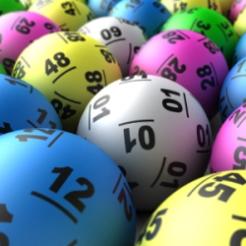The National Lottery estimates it is losing £1m in sales a week as a result of the Health Lottery, contrary to claims by the latter that it is expanding the lottery market.
National Lottery operator Camelot has conducted its first analysis of what impact the launch of the Health Lottery in October last year has had on its sales, and found that the newcomer has chipped away at the national game’s market share and says it expects its negative impact on sales to only increase.
“We believe that, at present, the National Lottery is losing around £1m a week in sales to the Health Lottery,” a spokesman told civilsociety.co.uk. “We estimate that this represents at least a third of weekly Health Lottery sales. Our analysis shows that the majority of this cannibalisation is being felt by National Lottery draws that take place on a Saturday – the same day as the Health Lottery draw.
“We expect this figure to rise sharply in the coming months as the Health Lottery has publicly stated it has a number of marketing initiatives and changes to its game plan to ensure it reaches the £50m it has promised to raise for health-related charities in its first year.”
Camelot said this £1m-a-week loss to the National Lottery equates to more than £20m a year less to the National Lottery’s good causes. It added that as the Health Lottery, a society lottery, pays no duty on sales, this represents a loss to the Exchequer also.
Health Lottery disputes 'negative impact'
Responding to the claims by Camelot, a Health Lottery spokesman said: ““Since our launch we have raised more than £10m for good causes. The Department of Media, Culture and Sport said recently that if current strong National Lottery ticket sales trends continue, National Lottery income could increase to £1.626bn in 2012/13 - £232m above what the Department had projected in September 2010.
“We have always believed the Health Lottery scheme, on behalf of the 51 CICs which participate, would inject a new lease of life into the lotteries sector, offering consumers choice without diluting the overall market. This has proved to be the case and we are delighted that people have recognised the scheme is a fun, new alternative which donates funds directly to local good causes in their areas.”
The Camelot spokesman confirmed that ticket sales for the National Lottery were higher in the last quarter of 2011, but the company has attributed this increase to the promotion of ‘Millionaire’s Month’ in December and high scratchcard sales around Christmas time, among other factors.
Just this week DCMS released figures showing that higher National Lottery ticket sales could, over the next five years, result in £1bn more to good causes than earlier forecast.
Since its launch, the Health Lottery and Camelot have been involved in an ongoing to-and-fro, with each disputing the other's figures and projections. The issue has drawn in both politicians and senior figures within civil society .
Camelot said that this detrimental impact on sales is just “one area of concern”, and that its primary issue is what it alleges is the unlawfulness of the structure of the lottery itself. Camelot is still awaiting a decision by the Gambling Commission on its complaints about the set-up of the Health Lottery.








